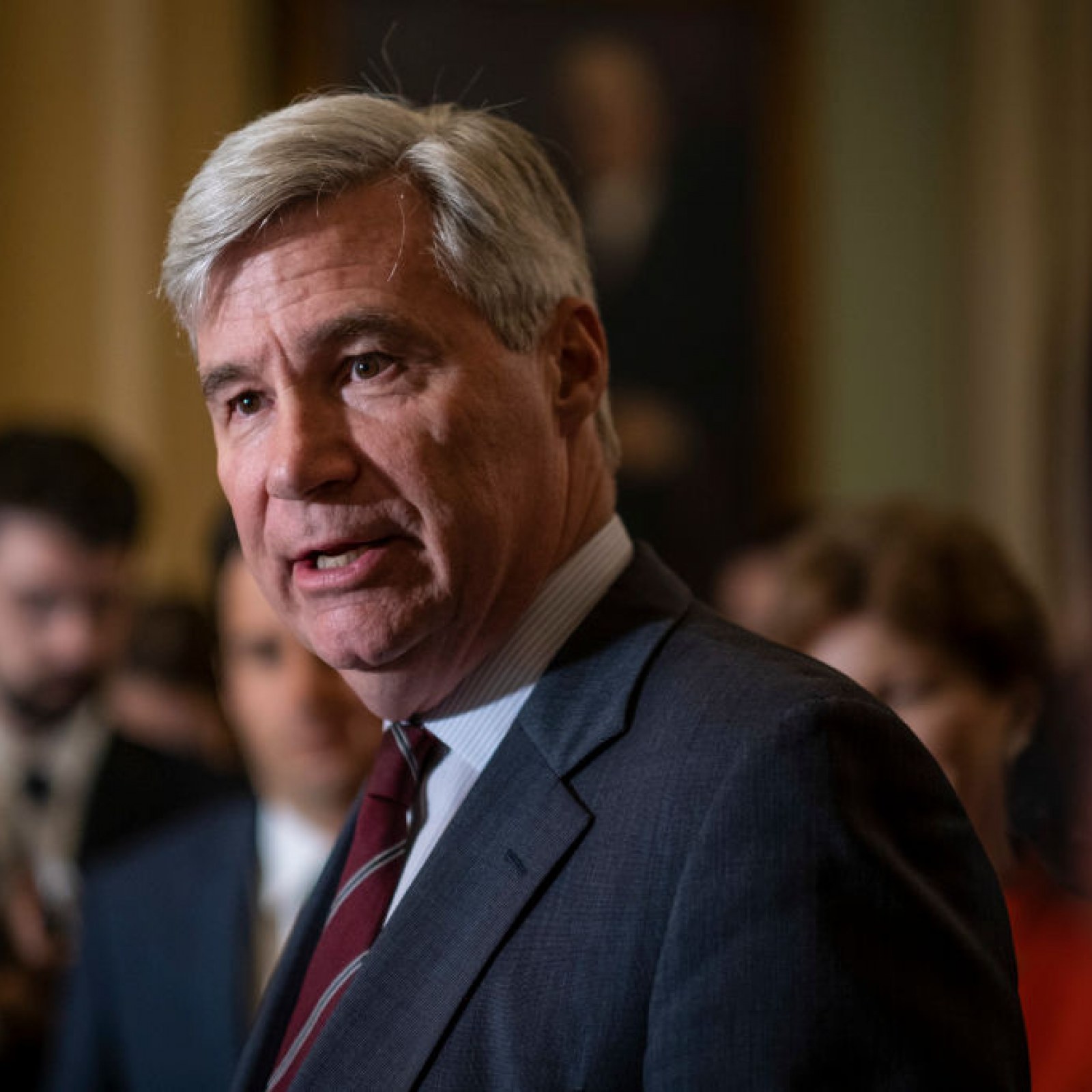Sheldon Whitehouse answers questions on climate change, renewable energy in R.I.
URI students were able to discuss both climate change and renewable energy with R.I. Senator Sheldon Whitehouse. Photo from newsweek.com.
Students in the University of Rhode Island’s Certificate in Energy Economics and Policy (EEP) program were able to talk to Rhode Island Senator Sheldon Whitehouse this week about climate change and renewable energy.
Whitehouse called in over video from Washington D.C. The seminar was a part of the class EEC 352G: Economics of Small Scale Renewable Energy Systems, but was also attended by people not in the class.
Professor Simona Trandafir, a professor and advisor for the EEP program, drafted questions to ask Whitehouse. The questions were based on topics students had learned about in the class, which covers climate change and renewable energy.
Whitehouse started by speaking about the U.S. Congress’s upcoming schedule for addressing climate change in the United States.
“[The senators] are working on the COVID bill now,” Senator Whitehouse said. “We will probably be done in about two weeks. Then we will look at the president’s ‘Build Back Better’ bill, and we’re really hoping that this is a big climate and infrastructure bill.”
All of this needs to get done before the summer, according to Whitehouse, when he and many other government officials will head to Glasgow, Scotland for the Paris Agreement.
One student asked Whitehouse if Rhode Islanders are, in general, for or against climate change. Senator Whitehouse responded that Rhode Island is one of the most accepting states of renewable energy. He cited Rhode Island’s lack of fossil fuel industries since the closure of the Cumberland coal mines in 1980.
However, Whitehouse noted that it is still important to remember the people who worked at these fossil fuel companies and to treat them with respect as we transition to a world of renewable energy.
“I’ve come up with the phrase ‘energy veterans,’” Whitehouse said. “You know, a coal miner out in West Virginia working his heart out in those dark, cold, dangerous mines was doing some pretty noble stuff and his or her work powered the American economy to global economic leadership, and they didn’t know about climate change and [carbon dioxide] emissions and the warming effect of that stuff. They did what was needed and we all reaped big economic rewards from what they did. So it’s important we don’t belittle them, and we treat them positively with their pensions and health and welfare plans.”
To remember the effect climate change can have on our world, Whitehouse had a few words of wisdom that he learned from the Pope.
“Nature never forgives,” said Whitehouse. “Nature works by rules and when you slap her, she will slap you back.”
EEC 352G is one of the courses offered at URI as part of the Certificate in Energy Economics and Policy. The program is a partnership between URI’s Department of Environmental and Natural Resource Economics and the URI Extension Outreach Center. The certificate shows employers that the student is knowledgeable on the topic of solving critical energy-related challenges of the 21st century, according to the program’s website.
Trandafir said that this was a unique opportunity for URI students, as it is not only available to graduate students but undergraduate students as well. She said that guest speakers such as Senator Whitehouse add a lot to the course.
“This was an extremely important lesson for my students learning and for the class itself,” said Trandafir. “The class is important because it develops this workforce that is needed for this ever-growing energy sector, especially renewable energy.”

